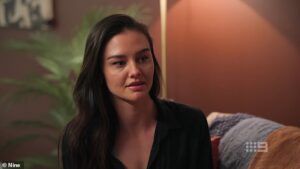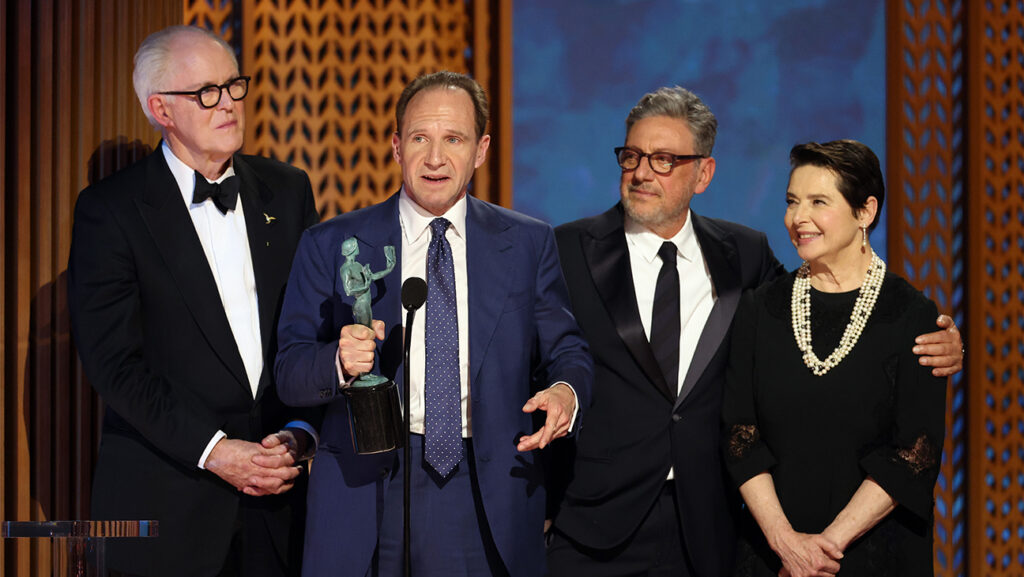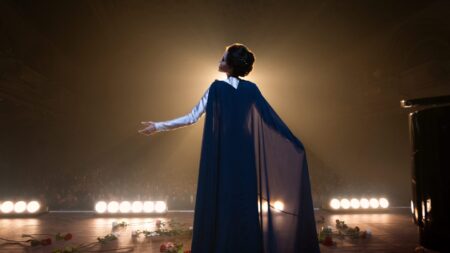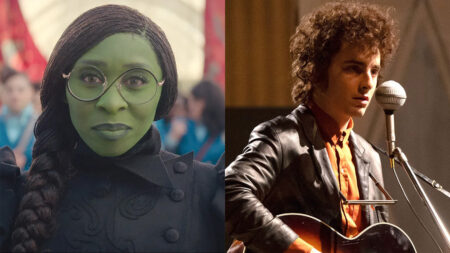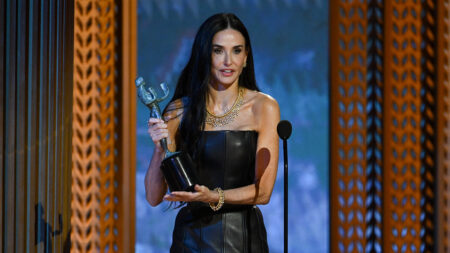We’re exactly one week away from the 97th Oscars, and, unlike most years at this point in the season, three of the highest-profile Oscars — best picture, best actor and best actress — still feel very much up for grabs. That’s in large part because the SAG Awards — which, over the last 30 years, has fairly consistently predicted the acting Oscar winners, as well as almost every major best picture Oscar surprise — featured some pretty striking selections on Sunday night, when its 31st edition took place at the Shrine Auditorium.
It’s important to note up-front that Academy members’ final ballots were due back last Tuesday, so the results of the SAG Awards — which were handed out later this year due to the Los Angeles wildfires — will not impact Oscar voting … but they could offer hints of what to expect from it.
The roughly 160,000 members of SAG-AFTRA, the world’s largest union of actors, chose Focus’ Conclave for their best ensemble prize, an upset over Universal’s Wicked, which had seemed more in line with the sort of populist films and diverse casts that have historically been recognized in the category by the guild; and Anora, which had a ton of momentum on the heels of claiming the top prizes at the Directors Guild, Producers Guild, Writers Guild, Critics Choice and Spirit Awards. (One theory that I heard at the SAG Awards afterparty: Conclave benefited from being made available for streaming weeks before the Christmas holidays, whereas Wicked dropped after them.)
Conclave will now head to the Oscars with two conflicting indicators: (a) it did not receive a directing Oscar nomination, as Edward Berger was inexplicably snubbed; but (b) it won the top prizes at both the BAFTA and SAG Awards. Only one film has ever won the best picture Oscar under the same circumstances: 2012’s Argo.
Conclave’s best film BAFTA win could be chalked up to a home-field advantage — it is a very British production — but the best ensemble SAG Award? There’s no pooh-poohing that one. That means there is a lot of love out there for the period piece dramedy. And even though the best ensemble SAG Award has a very inconsistent track record of predicting the best picture Oscar (they’ve overlapped on just 15 out of 30 occasions), almost every best picture Oscar surprise-winner first won the best ensemble SAG Award. See: 1998’s Shakespeare in Love, 2005’s Crash, 2015’s Spotlight, 2019’s Parasite and 2021’s CODA.
Since 2010, the big Oscars wild-card, of course, is the preferential ballot via which the Academy selects its best picture winner. Only one of the major precursor ceremonies, the PGA Awards, employs the same sort of ballot, and its top prize went to Anora. And yet, based on my own intuition and conversations with quite a few Academy members, Conclave seems to be a less polarizing film than Anora, which would suggest that it could be a beneficiary of the preferential ballot, to say nothing of the increased number of Academy members who are based outside of America.
The bottom line: Nobody should feel particularly confident in whatever their best picture prediction is for next Sunday!
The SAG Awards have also thrown a degree of doubt into the best actor Oscar race. Prior to Sunday, The Brutalist’s Adrien Brody had won the category at every major precursor ceremony — the Golden Globe, Critics Choice and BAFTA Awards — but SAG-AFTRA went with A Complete Unknown’s Timothée Chalamet. Brody’s movie has two more Oscar noms than Chalamet’s, but Chalamet’s is definitely more accessible to more people — it’s a crowd-pleasing blockbuster, as opposed to a three-and-a-half-hour art piece. And unlike Brody, who very memorably won an Oscar 22 years ago, Chalamet has never won an Oscar.
Is the Academy ready to add Brody to the list currently comprised of just 10 bona-fide legends who have won more more than one best actor Oscar: Daniel Day-Lewis (the only person who has won it three times), Jack Nicholson, Spencer Tracy, Marlon Brando, Dustin Hoffman, Tom Hanks, Anthony Hopkins, Fredric March, Gary Cooper and Sean Penn? Or will Chalamet be tapped, and in so doing, break the record for youngest ever best actor Oscar winner, which is currently held by — you guessed it — Brody, who was a few days more past his 29th birthday than Chalamet will be? Time will tell.
As for the best actress Oscar race? The SAG Awards pitted against each other The Substance’s Demi Moore, who won Golden Globe and Critics Choice Awards earlier in the season; and Anora’s Mikey Madison, who is coming off BAFTA and Spirit Awards in the last week.
If ingenue Madison, 25, had won the SAG Award, I think most pundits would interpret that as further reflecting late-breaking momentum in her favor, and would have broken for her. But instead, it went to veteran Moore, 62, who now has her first evidence of real industry support for her, given that her prior high-profile wins both came from groups of journalists.
At this point, I think one has to give Moore a slight edge for the Oscar — while keeping in mind the X-factor of I’m Still Here’s Fernanda Torres. Other than appearing together on the Oscar ballot, the three have never been pitted head-to-head. Torres’ film rose to prominence much later in the season than Madison’s or Moore’s, and a not inconsiderable number of voters who caught up with it in recent weeks have indicated to myself and to other pundits that they broke for Torres. Even though Torres has some daunting stats she’d have to overcome — most notably, that nobody has ever won a lead acting Oscar without having received either a BAFTA or SAG nomination — she cannot be ruled out.
As for the other two acting races, best supporting actor and best supporting actress? The SAG Awards rubberstamped the picks of every other major awards group that preceded them in backing A Real Pain’s Kieran Culkin and Emilia Pérez’s Zoe Saldaña. If either of them loses at the Oscars, it would be a shocking upset that one would have to attribute, in the former case, to the fact that Culkin’s film was not nominated for best picture, unlike many of his fellow nominees’ films, and was therefore not prioritized as much by voters; and, in the latter case, to the debris caused by the implosion of Emilia Pérez‘s best actress nominee Karla Sofía Gascón.
Read the full article here
